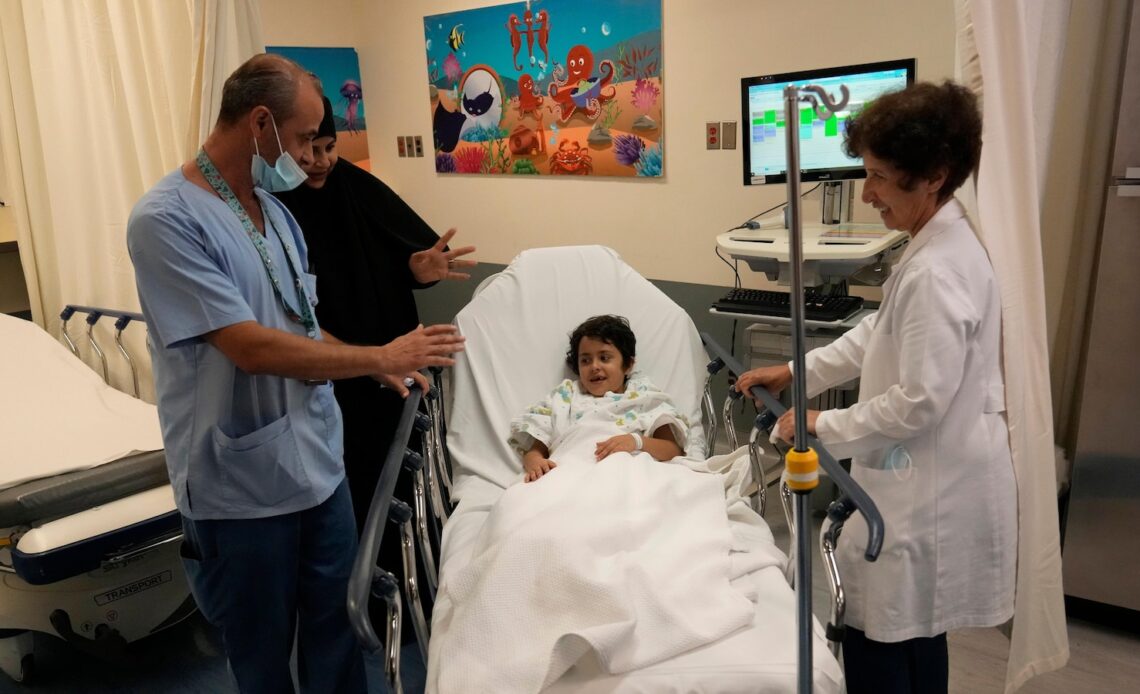BEIRUT — When Zarifa Nawfal’s family arrived in Beirut for her wounded daughter’s surgery, one of the first things she wanted to do was go to the sea. The Mediterranean had been a constant companion at their home in Gaza before the war.
“The moment I smelled the sea, I felt at peace inside — as if I were in Gaza,” she said.
But soon their place of refuge reminded her of home in far more distressing ways.
Nawfal’s 7-year-old daughter, Halima Abou Yassine, is one of a dozen severely wounded Palestinian children brought to Lebanon this year for treatment through a program launched by a British-Palestinian surgeon, Dr. Ghassan Abu Sitta.
But months after their arrival, Lebanon is itself embroiled in a war some fear will end in Gaza-like destruction.
In February, Nawfal was staying with her five children and her mother in an apartment in central Gaza. They had been displaced from their home in the north and Nawfal’s husband was missing, likely dead.
The children were filling water containers outside when two missiles struck, Nawfal said. She rushed outside and found Halima, the youngest, lying in the street, her skull cracked open, her brain exposed.
Through her shock, Nawfal said, “I was relieved that her body was in one piece.” In Gaza, blasts often ripped people apart, leaving their loved ones without even a body to bury.
Halima’s brother was unconscious next to her. He was quickly revived at the hospital. But staff at Al-Aqsa Martyrs Hospital confirmed Nawfal’s fears, she said: Halima was dead. Her small body was placed in the morgue.
But as the family was preparing to bury her, the little girl’s uncle noticed faint signs of life, the family said.
Officials at Al-Aqsa hospital could not be reached to confirm the account. But Abu Sitta, who has worked in several Gaza hospitals during the war, said in the chaotic situation it was not uncommon for patients to be misidentified as dead because normal protocols for emergency room examinations were often abandoned.
“Because of the sheer number of cases that would come in with each air raid … the ambulance staff would take to the morgue immediately those who they thought were dead,” he said.
In the days after her daughter was determined to be alive, Nawfal stayed with her, manually pumping oxygen into her lungs. After a week, the little girl began to breathe on her own. Finally, she woke up.
“Some of the doctors cried and said this is a miracle,” Nawfal said.
But they were unable to do more…
Click Here to Read the Full Original Article at ABC News: Health…

